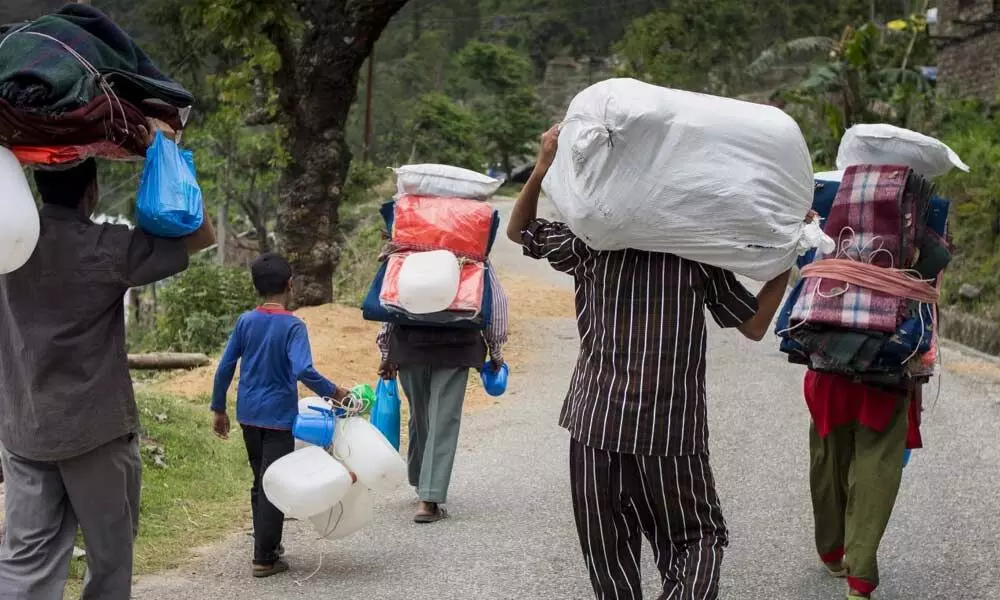Brace for disasters, forced migration

Brace for disasters, forced migration
Climate change is impacting us on yet another count.
Climate change is impacting us on yet another count. This man-made disaster is forcing droughts and also heavy rainfall days on us. Melting of the ice in the oceans is causing us concern. A group of the World Bank which studied the water stress due to climate change and its impact on the migration of populations has predicted a migration disaster for mankind.
The latest report says that water deficits are linked to 10% of the rise in global migration. Climate change is accelerating the global water crisis: 17 countries that are home to 25% of the world population already face extremely high levels of water stress. India is one among those. The absence of water has a greater impact on migration than an abundance of water. Rainfall shocks – when rainfall is significantly above or below the long-term average for a region – are expected to be the driving force in water-induced migration in the years ahead.
Dry rainfall shocks have five times the effect on out-migration than wet rainfall shocks, the study reported. Rainfall variability disproportionately impacts the developing world, with more than 85% of people affected living in low- or middle-income countries. Scientists project that worsening droughts will affect about 700 million people by the end of this century, it is said. The countries most affected are usually more dependent on agricultural labour. The report points out that global warming will make "day zero" events more common in the world's cities, which are now home to 55% of the human population. Urban water supplies are under threat from rising heat stress and water scarcity.
Risks to the sustainability of cities include changes in the global hydrologic cycle and water deficits in rural areas that drive agricultural workers to urban areas. The report mentions Chennai prominently as among the affected cities. We should understand that it pays to invest in water. Water shocks are costly – a drought can reduce a city's economic growth by up to 12%. Although adapting to these events can be expensive, it is crucial to invest in policies and infrastructure that enhance urban water resilience because cities drive economic growth. Recycling wastewater and harvesting storm water provides alternative water supplies that have environmental benefits. "Sponge City" concepts that improve flood protection and capture run-off create more water sources for city dwellers. Smart cities need smart water policies. Solution? Well, protect livelihoods in the place of origin. Water storage and supplemental irrigation, weighed carefully to avoid unintended consequences, can effectively buffer vulnerable rural communities against water variability and scarcity.
Climate-smart agriculture and farmer-led irrigation can play similar roles while minimising the environmental footprint. And alongside built infrastructure, green infrastructure such as watersheds and their associated forests that store, filter, and distribute both surface water and groundwater, can enhance the resilience and quality of water supplies. Investing in their preservation or restoration can provide long-term benefits while boosting short-term job creation. Also preserve and sustain urban water resources and infrastructure. Sounds complicated? Yeah? All that it requires is a commitment on part of our rulers and administrators and nothing more. Is it too much to expect this quality from them?










